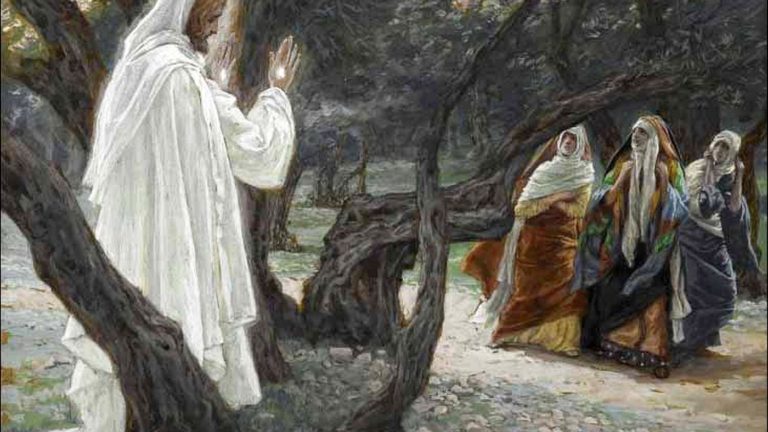On Easter Octave, we experience the same joy that took over our hearts on the Sunday of the Lord’s Resurrection. For this reason, the Liturgy of the coming days will make us contemplate the various apparitions of the Risen One to his disciples. But why, we may ask, does Jesus insist on appearing only to those who already followed him? The answer to that question lies in the fact that, with Christ’s death on Good Friday, the Apostles’ faith died, and as such, after his resurrection, Christ appeared to them in order to resurrect the faith that they once had.
Today’s Gospel Reading (cf. Matthew 28:8-15) demonstrates one of the appearances of the risen Lord. In a particular way, Jesus appears to the holy women, who went to seek him among the dead where he no longer belongs. We were told that they were filled with “awe and great joy” and mandated by Christ to go tell the brethren to meet him at Galilee. While the women were on their way, some of the guards went off into the city to connive with the chief priests in order to spread a “fake news” among the people that the body of Jesus was stolen by his disciples while they were asleep on duty (guarding the tomb). Unfortunately, that fake news is told till this day among the Jews. Apparently, fake news can seem so believable that people have a hard time determining the truth. It is created by people with malicious intent in order to mislead others.
Sadly, the devil still employs some persons to spread fake news concerning our Easter celebration today. Today, we see various memes debunking the celebration of Easter and rendering it a pagan celebration of the worship of a Mesopotamian goddess called Ishtar etc. The unfortunate aspect of these criticisms lies in the fact that the word Easter is actually an English word, which sprung from the German roots; thus, only a person whose native language is English, or perhaps German, would even advance this kind of argument. Therefore, anyone making this charge shows a total lack of comprehension of global Christianity. It must be understood that “Pesach” or “Passover” as it is biblically known is the original word for Easter. This translates itself into Greek as “Pascha”, and in the Latin Septuagint a “Pascha”. From there it passed into the Romance languages, and so in Spanish, it is Pascua, in Italian, it is Pasqua, in French it is Paques, and in Portuguese it is Páscoa. On the other hand, the English term Easter illustrates the significance of the Lord’s resurrection. The term relates to the “East,” the direction of the Rising Sun, which signifies “rebirth” or “New Life” of the resurrection. Several times, the Scripture has often referred to Christ as the Sun of justice, rising from the east. Does this remind us of Zachariah’s prophecy in relation to Christ – “through the loving mercy of our God, the rising Sun has come to visit us”? (Luke 1:78). A reference to the Lord Jesus Christ coming as the Rising Sun is found in the last chapter of Malachi. With this, the Lord Jesus Christ is referred to as the rising Sun of righteousness… (cf. Malachi 4:1-3). Therefore, this symbolism of Easter (as the sun, which had its birth in the East and brought new life upon earth) has a supernatural meaning to the new life of the Risen Christ, the eternal and uncreated Light.
Dear friends in Christ, just as Peter preached the new life of the risen Christ about the resurrected Christ in the First Reading (cf. Acts 2:14,22-33), we too are called to “preach the Good News” of the resurrection by our way of life, by distancing ourselves and shutting our ears/eyes from the perpetrators of “fake news” threatening our awesome Easter celebration.
Above all, may the grace of the risen Christ ‘preserve us’ and ‘not leave our souls to experience death nor corruption, as shown in today’s Psalm [cf. Psalm 15(16):1-2,5,7-11]
Shalom!
© Fr. Chinaka Justin Mbaeri, OSJ
Paroquia Nossa Senhora de Fatima, Vila Sabrina, São Paulo, Brazil
nozickcjoe@gmail.com / fadacjay@gmail.com



